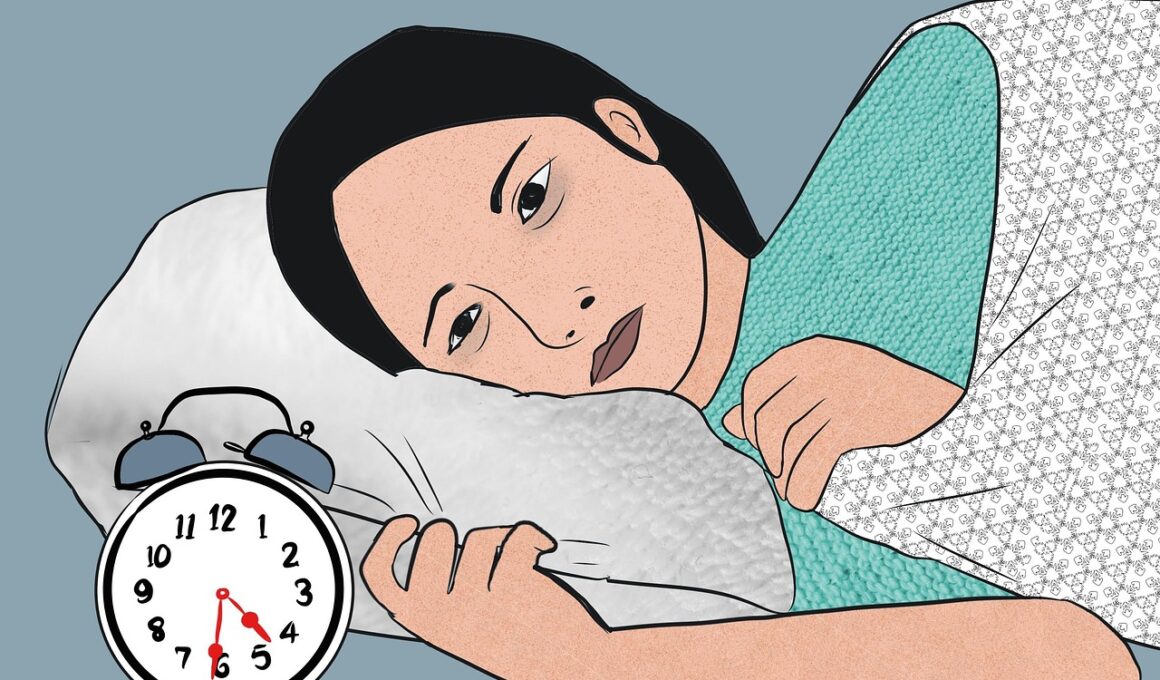Myths About Eating Late at Night and Weight Gain
Many people believe that eating late at night contributes to weight gain. This idea is entrenched in common myths about nutrition. The basis for this belief is often related to the natural sleep cycle. Our bodies are wired to burn calories efficiently when awake. However, weight gain is primarily linked to the total caloric intake rather than the timing of meals. When considering how late-night eating impacts weight, it’s crucial to focus on what you consume. If late-night snacks are often high in calories and low in nutritional value, they can lead to unwanted weight gain. Conversely, nutritious foods consumed in moderation can fit into a healthy diet. To debunk this myth, one must consider overall nutritional habits. Eating a balanced diet and practicing portion control, regardless of when you eat, is vital for maintaining weight. In essence, it is about total calories. No single meal timing will inherently lead to weight gain; it’s about the sum of our nutrition habits over time. Understanding this can help change your perspective on late-night eating and dispel the myths surrounding it.
Another common misconception surrounds the idea that late-night eating disrupts metabolism. Many claim that eating after a certain hour leads to slower metabolism and inevitable weight gain. However, research shows that the timing of food has minimal impact on metabolic processes. Metabolism functions at a consistent rate, regardless of when calories are consumed. What truly affects metabolism is the type and amount of food that one eats. For instance, a metabolism-boosting diet rich in protein may aid in maintaining weight, whether consumed during the day or night. It’s worth noting that late-night meals can sometimes be a response to various external factors. Stress or social gatherings often lead to late-night snacking, which can lead to overeating. Staying mindful during these occasions can help mitigate unwanted weight gain. In fact, individuals focusing on their overall food choices, rather than adhering to strict timing, may find that they have no adverse effects from late-night eating. Ultimately, it’s about creating sustainable habits that work for your lifestyle while ensuring nutritional balance.
Understanding Caloric Intake
Caloric intake plays a significant role in weight management. Many people fall prey to the belief that calories are inherently bad when consumed late. The truth is, the source of calories is more important than the time when they are consumed. Foods high in sugar and fat can negatively impact weight gain, whether eaten early or late. To clarify, eating a healthy snack at night can be perfectly fine. An apple or a small bowl of Greek yogurt provides essential nutrients and can satisfy cravings without leading to unwanted weight. Hence, it’s essential to choose what you eat rather than focusing solely on when you eat it. Look at your daily caloric needs and adjust accordingly, regardless of meal timing. Understanding how many calories you should consume daily based on your activity level is critical. An approach that focuses on balanced nutrition helps in mitigating weight gain concerns. You can enjoy late-night meals without guilt by ensuring they are nutritious and fitting into your overall calorie goal. This balanced approach counteracts the notion of mythical caloric punishments for late-night eating.
Furthermore, eating late can sometimes be a healthy practice. For individuals who work night shifts or have irregular schedules, adapting meal timing to their lifestyle is crucial. The body can adjust to various eating patterns, allowing for flexibility without adverse effects on weight. Researchers have found that, in these cases, maintaining all-day energy levels can lead to improved metabolism and overall health. As long as caloric intake is balanced, late-night meals can be beneficial for maintaining energy and focus during late hours. This is particularly significant for those engaged in physical activities or workouts during evening hours. Post-workout nutrition is vital, and for these individuals, eating later does not correlate with weight gain. It’s about understanding individual needs and tailoring nutrition accordingly. Those aiming for weight loss may still find success in late-night eating, as long as they prioritize healthy choices and moderation. Ultimately, nutrition should be personalized. Understanding one’s body and lifestyle is essential. Everyone can learn to enjoy food without adhering strictly to outdated myths surrounding meal timing.
Finding Balance
Finding balance in nutrition is key to dispelling myths about eating times. Integrating late-night meals into a balanced diet is not only permissible but can be advantageous under certain circumstances. Individuals who enjoy these meals can thrive by being mindful of food quality and serving sizes. Late-night eating should not be viewed as a negative practice but rather a part of a well-rounded nutritional strategy. Preparation plays an essential role in ensuring healthy choices during nighttime cravings. Planning healthy snacks in advance can alleviate the temptation to indulge in unhealthy options. Additionally, understanding portion sizes can help uphold a balance without feeling deprived. Instead of automatically dismissing nighttime hunger, listening to the body’s signals can lead to better choices. Eating when genuinely hungry can help personalize eating habits effectively. This consideration can foster a positive relationship with food, allowing late-night meals to be enjoyable rather than anxiety-inducing. Ultimately, embracing a comprehensive view of nutrition—one that includes late-night eating—can enhance overall well-being. Addressing individual needs leads to a healthier attitude towards food, breaking free from outdated dietary myths.
It’s essential to normalize discussions around late-night eating and to dispel shame associated with it. Social expectations often deter individuals from enjoying late-night meals, promoting the idea that they are inherently bad. However, these cultural perceptions do not align with the science of nutrition. Conversations about food and weight loss should focus less on stigmatizing specific eating times. Instead, they should promote healthy attitudes toward nutrition. Encouraging a culture that embraces food variety and promotes joy in dining can combat restrictive beliefs. For instance, allowing yourself to savor a nutritious meal at night can cultivate a healthier mindset. Engaging in meals that are fulfilling, even late at night, is vital. Nutritional guilt should be addressed at all levels of dietary discussions, as feelings of shame can lead to unhealthy behaviors. Understanding that it could potentially enhance relationships with food and bolster positive mental health is crucial. By reframing late-night eating as an option rather than avoidance, individuals can break free from detrimental patterns and perception. This shift can lead to a healthier approach in how one navigates eating habits.
Conclusions on Late Eating
In summary, understanding the truths about late-night eating is vital for a healthier relationship with food. Recognizing that the timing of meals is less impactful than overall dietary quality is essential. Individuals should focus on maintaining a balanced diet while enjoying flexibility regarding when to eat. Emphasizing moderation and nutritional choices over meal timing can foster a healthier lifestyle. Be proactive in addressing cravings rather than turning them away. It is possible to experience weight management success without the rigid guidelines associated with mealtime. Additionally, consider the necessity of educating ourselves and dispelling myths that surround food. Listening to personal hunger cues, regardless of the hour, can lead to a greater understanding of one’s dietary needs. Furthermore, individuals looking to maintain or lose weight can benefit from a mindset that supports diverse eating habits. Such approaches empower people to embrace food as a source of enjoyment, energy, and nourishment rather than fear. Shifting perceptions around late eating can lead to a healthier lifestyle without the stress associated with restrictive diet rules.
Research studies have confirmed that late-night eating does not necessarily lead to weight gain. Extensive scientific evidence suggests that body weight influences are more heavily linked to the overall quality of the diet rather than the time that food is consumed. This understanding encourages a more wholistic approach to nutrition, emphasizing moderation and careful food selections at any hour of the day. Allow yourself to relish each food opportunity, regardless of timing. This can lead to fulfilling meals without fear or guilt of weight repercussions. Moreover, community discussions on nutrition should aim to empower individuals to view food differently. Having open conversations may help further reshaping how society views late-night eating. This further highlights the importance of healthy, balanced eating patterns for everyone. Being informed about nutritional impacts can alleviate fears surrounding meal timings for many individuals. Lastly, individuals should seek enjoyment and mindfulness in every meal they consume, letting go of outdated myths that impose unnecessary restrictions. Nutritional well-being is about finding what works for one’s lifestyle and needs. Embrace food, both day and night, while keeping balance as your guiding principle.





